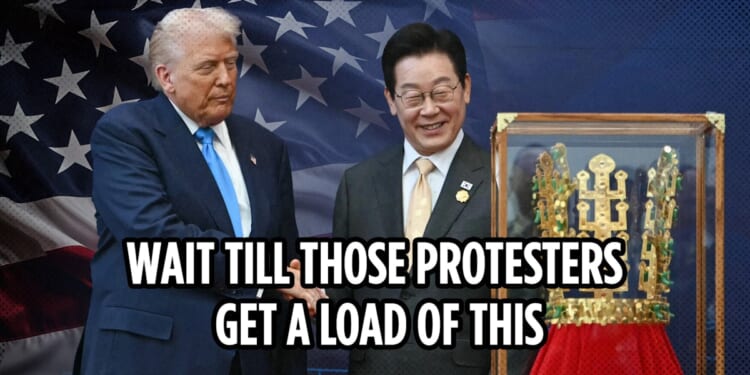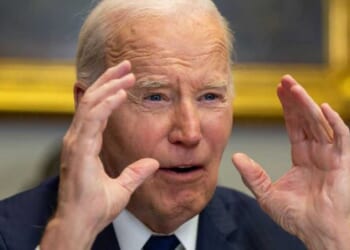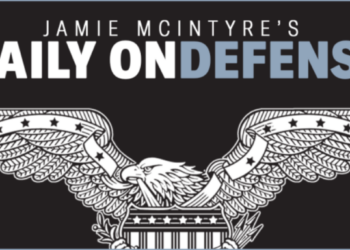It’s almost like Donald Trump is, you know, a businessman. That’s a key takeaway from his tour of Asia over the last week.
While Democrats in the Senate were busy keeping the government closed, Trump was abroad conducting the nation’s business — cutting deals and restoring our relationships with various nations. He secured deals in Malaysia, Thailand, Cambodia, Japan, and South Korea (where he received — get this — the gift of a crown) before sitting down with China’s Xi Jinping on Thursday in Busan, South Korea.
House Minority Leader Hakeem Jeffries complained, “Donald Trump has spent more time talking to Hamas and the Chinese Communist Party than he has in talking to Democrats on Capitol Hill to end the Trump shutdown.”
Sheesh. What does that say about Democrats? And it’s the Schumer Shutdown, by the way.
Before his meeting with Xi, Trump posted, “Bringing back Trillions of Dollars to USA! A great trip. Dealing with very smart, talented, and wonderful Leaders.” Some estimates put his deals at $18 trillion, though Trump argued, “I think we’re going to hit $21 or $22 trillion by the time I finish my first year.”
You could certainly argue that Trump is counting his chickens before they’ve hatched. The trillions in promised investment will take time and may yield different numbers as countries adapt to circumstances. The point, however, is that Trump has ensured that other nations want to invest in America.
That wasn’t true under President Autopen.
The most important news might be on rare earths. Rare earth materials are critical to the manufacture of all sorts of items Americans need — computers, phones, medical equipment, automobiles, etc. As our Douglas Andrews noted earlier this month, “China has practically cornered the market on rare earth materials and now controls somewhere between 60% and 90% of the globe’s mined and processed rare earths.” One of Trump’s main objectives on his trip was to change that.
He began that heavy lift by negotiating with China’s neighbors to boost mining and production of rare earths as a counterbalance to China. He worked out “at least four major deals with Australia, Japan, plus in Southeast Asia,” reports Fox Business. “Plus President Trump is getting the EU, and allies to diversify their rare earth supply chains with Australia, Canada, and Southeast Asia.”
As Trump boasted, “In about a year from now, we’ll have so much critical minerals and rare earths that you won’t know what to do with them.”
Having built that leverage, Trump was able to get Xi to agree to pause China’s export controls, albeit only for a year. “Now, every year we’ll renegotiate the deal, but I think the deal will go on for a long time, long beyond the year,” Trump said. “But all of the rare earth has been settled, and that’s for the world.”
“China also agreed that they will begin the process of purchasing American Energy,” Trump posted. “In fact, a very large scale transaction may take place concerning the purchase of Oil and Gas from the Great State of Alaska.”
Trump said China will also “work very hard to stop the flow” of fentanyl to the United States, though I’ll believe that when I see it. More tangibly, China placed an order for massive amounts of American soybeans, which will greatly help American farmers who’ve borne the brunt of Trump’s tariff battles as other nations hit our agricultural exports. Again, however, that depends on China following through, which it often doesn’t.
In exchange for Xi’s concessions, Trump said he’ll cut tariffs by 10 percentage points. He gave up nothing on Taiwan, but he gained nothing in terms of ending or slowing China’s continued purchases of Russian oil. He gave his dealmaking with China a “12 out of 10,” but, though he did well enough, that rating is much too generous.
















